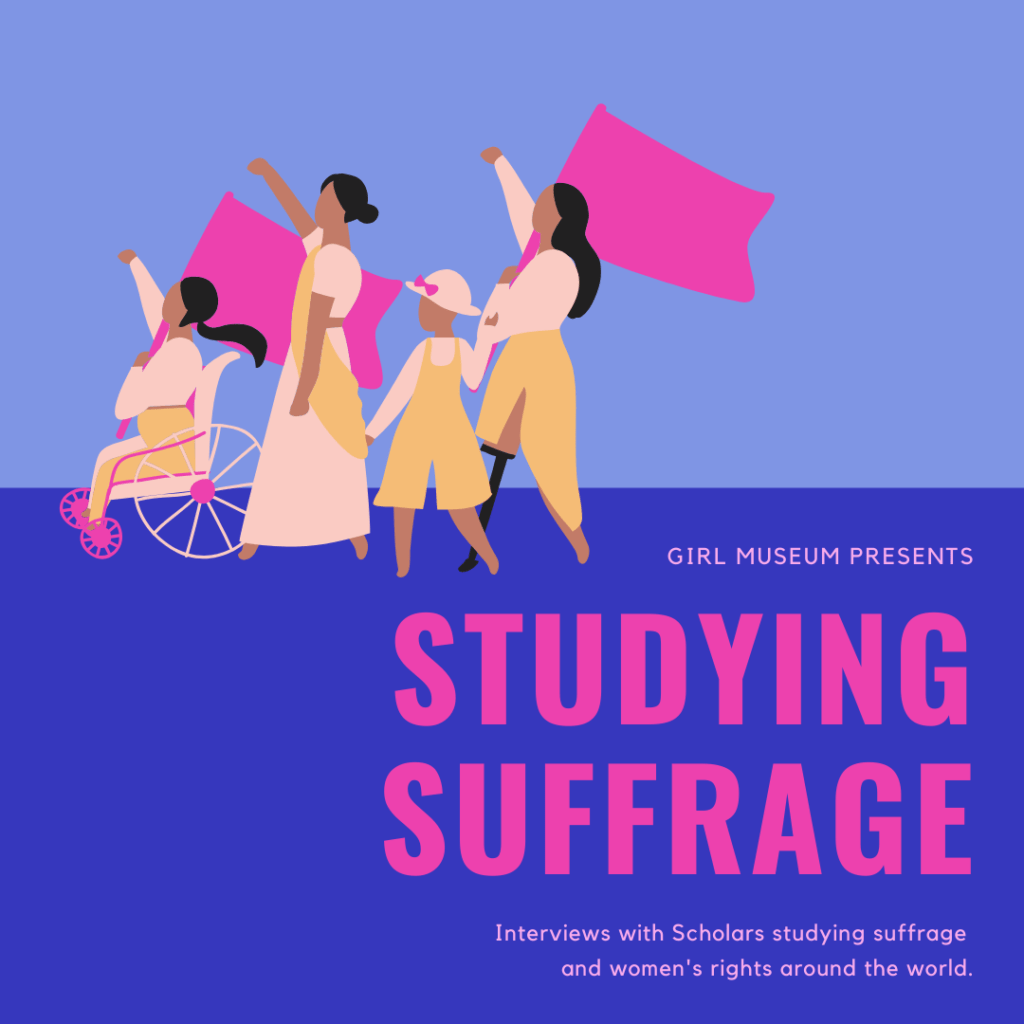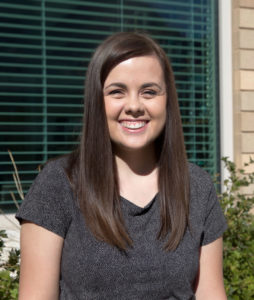
As we launch our Young Suffrage exhibition, we would like to share a series of interviews with academics who are actively studying the suffrage movement and women’s rights around the world. Below is an extensive Q&A with scholar McKenzi Christensen. Questions from Girl Museum are bolded.
How did you become interested in studying suffrage, and particularly young women/girls involved in the movement?
I was working on a history capstone paper and the research needed to fall under the category of the history of childhood/youth and women’s studies. I knew I wanted to do something with youth activism. I read a book by Carol Dyhouse called Girl Trouble which showed a picture of a young girl holding up a sign saying “Votes for Women”. When I first saw it I assumed that plenty of authors must have already written about young girls involved in the women’s suffrage movement but as I began researching I realized that this wasn’t the case. There were authors that either briefly mentioned a few girls under the age of 21 or only focused on a few girls.

What was your research process like?
As I began looking into any suffragist that was under the age of 21 I realized that there were potentially many young girls in the UK who were suffragists but I needed to access archives at the Women’s Library at the London School of Economics so I applied for research funds through my university to travel there. While searching for any information in those archives I found much more than I’d ever expected, I found dozens of girls in the UK who were suffragists, and many of which were militant suffragettes. I was able to listen to many of their oral interviews from decades later as well as diaries and photographs. During this time I was also scouring newspaper records in both the US and UK which I realized often used the phrase “baby suffragettes” or “baby suffragists” to refer to these young girls.
I noticed two girls in particular, Dora Thewlis in the UK, and Dorothy Frooks in the US were especially focused on in the newspapers and referred to as “baby suffragettes” and received a lot of media attention. I decided to focus a lot of my research on the different media responses to these girl suffragists. Over time I was able to piece together more and more of each of these girls’ stories. At first my research on the girls in the UK was much more developed as the sources were more readily accessible at the Women’s Library and the girls seemed to be more reported on in UK newspapers at the time. I traveled to archives in the US to find more girl suffragists in the US and was able to find more research on many youth suffrage clubs that existed across the US.
What is the most common misconception people have about “baby suffragettes” and their place in the suffrage movement?
These young suffragists faced opposition like most suffragists but they had the added opposition against their age. The media portrayed them as immature and irresponsible or as a joke. They often described them as silly little girls who were being controlled by adult suffragists and didn’t take them seriously. But from everything I researched it is clear that these girls were passionate and dedicated to the cause of women’s suffrage even though they were often far from a voting age.
Tell us about the most surprising or unique thing you uncovered in your research.
One of the most surprising things for me about these girls was how overlooked and forgotten many of them had become. Most people have never heard of girls like Dorothy Frooks, Elsie Duval, Vera Wentworth, or Nellie Hall. I had never heard of them. As I researched their lives I’ve become so inspired by their courage and determination. I know that there are even more girls out there who added so much to the women’s suffrage movement but their stories haven’t been told either so I’m determined to find them and share their stories.
Besides women’s suffrage, what is your favorite period of history to read about and study?
I love anything to do with British history and that’s what drew me to looking at the UK for youth activism in the first place. I hope to go to grad school next year to study modern British history and hopefully continue research on young girl activism. I also love to study overlooked or forgotten people in history and share their stories.
Anything else that you would like people to know about “baby suffragettes?”
I hope that these “baby suffragettes” can inspire young girls their age to stand up for what they believe. I’m actually working on turning the stories of these girls into a young adult narrative nonfiction book to help young girls become more aware of their stories!
-Sage Daugherty
Associate Editor
Girl Museum Inc.
